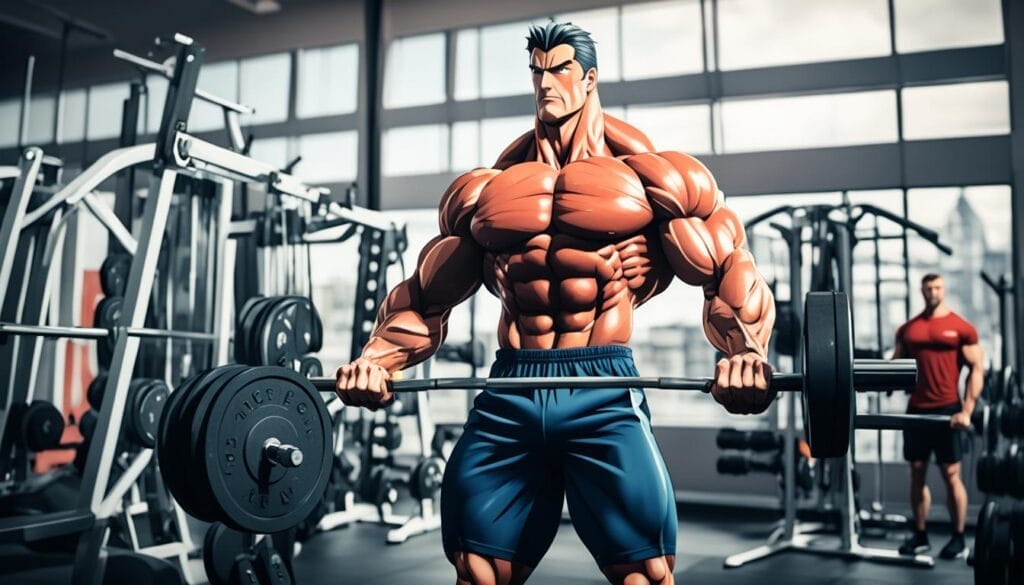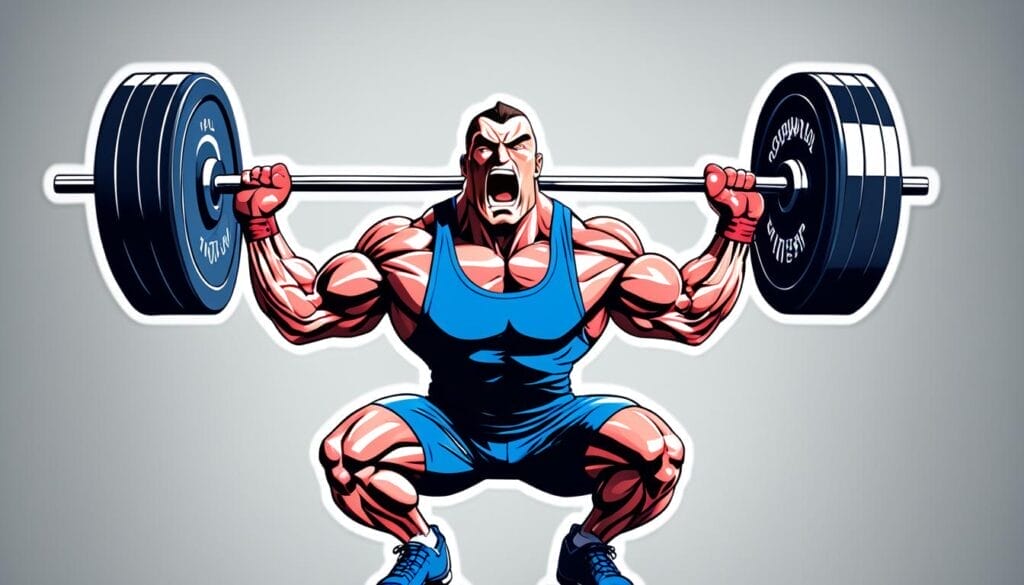Recovery is key in any fitness routine. Maximising muscle recovery boosts performance and avoids injuries. You can improve muscle recovery through good nutrition, staying hydrated, plenty of rest, and specific recovery techniques.
A while back, I aimed to run a marathon. I was very fit but found long-distance runs tough. As I pushed harder, my muscles got tired.
Even with all my effort, I faced sore muscles, being tired, and sometimes an injury. Seeing my progress slow down was hard.
Soon, I looked into how to recover better. I found many ways to do so and began to use them. I focused on eating right and drinking lots of water.
I found using a foam roller very helpful. It massages muscles, boosts blood flow, and lessens soreness. Cold showers and ice baths also helped me recover faster.
With time, my recovery really improved. I felt less sore and stronger. This helped me keep training for a marathon.
That time showed me to take recovery seriously. Even if we want to push hard, our body needs time to recover and get stronger. Using good muscle recovery methods helps improve our fitness and avoid injuries.
Key Takeaways:
- Nutrition, hydration, rest, and specific recovery techniques are essential for muscle recovery.
- Consuming a balanced diet with sufficient protein and carbohydrates aids in muscle repair and glycogen replenishment.
- Staying hydrated by drinking enough water and considering cherry juice can promote muscle recovery and reduce soreness.
- Rest and quality sleep are crucial for muscle recovery and growth.
- Additional strategies such as massage, compression garments, and cryotherapy can aid in muscle recovery.
Proper Nutrition for Muscle Recovery
Good nutrition is key for helping your body recover after exercise. It’s important to eat the right foods after a tough workout. This helps your muscles heal and gives you the energy you need.
Protein Post-Workout
After working out, eating protein is vital for muscle repair. Protein is like the bricks for building new muscle. It also boosts muscle growth and strength.
“Protein is crucial for muscle recovery. It aids in repairing damaged muscle tissue and promoting growth and repair.” – Iain, Fitness Expert
Great protein sources include meat, fish, eggs, and plants. You should aim to eat 20-30 grams of protein within an hour after exercising. This is the best time for your body to use it.
Carbohydrates Post-Workout

Don’t forget about carbs after you exercise. Carbs refill your energy stores. This makes sure you’re ready for your next workout.
Eat carbs like whole grains, fruits, and veggies for long-lasting energy. Quick sugary snacks, like a sports drink or fruit, can also help.
Building a Balanced Diet
Eating a mix of protein and carbs is important, but so is balance. Try to avoid junk food as it doesn’t help you recover. Instead, go for foods that are good for you.
“A balanced diet is the foundation for muscle recovery. It provides the necessary nutrients to support healing and growth.” – Lisa, Nutritionist
Fill your plate with a range of fruits, veggies, grains, and lean meats. Don’t forget about healthy fats too. This gives your body the vitamins and minerals it needs for recovery.
Good nutrition is something you need to stay on top of. Every person’s diet is slightly different. A nutritionist or doctor can help you find what’s best for you.
| Nutrient | Food Sources |
|---|---|
| Protein | Lean meats, fish, poultry, eggs, dairy products, legumes, tofu, tempeh |
| Carbohydrates | Whole grains, fruits, vegetables, sports drinks |
| Fruits and Vegetables | Various fruits and vegetables rich in essential vitamins and minerals |
| Healthy Fats | Avocados, nuts, seeds, olive oil |
Choosing the right foods and sticking to a healthy diet can greatly help your muscles recover. Remember, keeping at it is the most important part of seeing good results.
Hydration and Muscle Recovery
Staying hydrated is crucial for muscle recovery. It helps in muscle repair and cuts down on soreness. Without enough water, recovery gets harder. This can lead to more muscle pain and damage.
When we exercise, we lose water through sweat. It’s vital to drink lots of water before, during, and after exercise. This helps keep your body’s water balance right and clears out waste.
While nothing beats water, cherry juice is also great for recovery. It has antioxidants that fight inflammation and soreness. Including cherry juice can be a tasty way to support your muscles.
A study from the University of Northumbria showed cherry juice’s benefits. People felt less muscle pain after tough workouts. This shows cherry juice can give a helpful push to muscle recovery.
It’s easy to add cherry juice to your daily routine. You can drink it alone or add it to a smoothie. This makes for a delicious way to help your muscles recover.
“Hydration is crucial for muscle recovery. Drinking water and cherry juice provides added help in lessening soreness and inflammation.”
In summary, keeping hydrated is key for your muscles. Drinking enough water and using cherry juice can aid your recovery. This can reduce the pain you feel after working out.
Rest and Sleep for Muscle Recovery
Rest and sleep are vital for muscle recovery. Enough rest time lets muscles repair and grow. For pro athletes and fans of fitness, getting the right sleep is key. It helps you perform better and avoid injuries.
Sleep deprivation harms muscle recovery. It messes with the body’s healing, lowers muscle protein making, and lessens growth hormone release. This can reduce muscle size and strength, affecting your performance.
Try to sleep 7 to 9 hours each night for best muscle repair. Sleep includes deep and REM stages, which help fix and grow muscles. So, set a sleep schedule that gives you deep, uninterrupted sleep.
Improving where you sleep can also boost your rest’s quality. Use a comfy bed, keep the room cool and dark, and avoid screens before sleep. A regular sleep pattern can also make your body clock work better for you.
Remember, sleeping and resting are as active as working out or eating well for muscle recovery. Always include good sleep in your fitness plans.
Don’t forget, resting and sleeping well is just as crucial as eating right and keeping hydrated. When you do all these things, your body can fix and build muscles well. This leads to better fitness outcomes overall.
| Importance of Rest and Sleep for Muscle Recovery | Sleep Deprivation and Muscle Growth |
|---|---|
| Allows for muscle repair and growth | Impairs muscle recovery and growth |
| Facilitates optimal performance | Reduces muscle mass and strength |
| Improves sleep quality | Disrupts sleep patterns |
| Contributes to overall wellness | Increases the risk of injury |

Additional Strategies for Muscle Recovery
Proper nutrition, being well hydrated, and getting enough rest are key for muscle recovery. But, there are other things you can do to help the process. You can lessen muscle soreness, boost circulation, and reduce inflammation. Let’s look at three top methods: massage, wearing compression tops, and using cryotherapy.
Massage for Muscle Recovery
Massage isn’t just a treat. It’s a great way to reduce soreness and boost flexibility. A good massage therapist can focus on areas that are tight. They use techniques like pressure and stretching. This helps with blood flow and speeds up how quickly your muscles recover.
Getting a massage often can help break up knots and smooth muscle. This can make your muscles less tense and help you relax. It’s not just for soothing sore muscles, though. It can stop injuries before they occur and even make you perform better.
If going to a pro isn’t an option, doing self-massage at home works too. Foam rollers or massage balls can help relieve muscle tension and aid in recovery.
Compression Garments for Muscle Recovery
Think about wearing compression items like socks or tights. They can make a big difference in how fast your muscles recover. These items press gently against your muscles. This boosts blood flow and lessens soreness.
Compression wear also helps get rid of waste like lactic acid. This means your muscles won’t feel as sore. Plus, they get more oxygen and nutrients faster, which helps them heal quicker.
Put these clothes on when you work out hard or after competitions. They could reduce muscle damage and help you recover faster.
Cryotherapy for Muscle Recovery
Cryotherapy is about chilling out in cold chambers or ice baths. It’s great for tackling pain, soreness, and swelling. This makes your muscles recover faster.
Cold temps make your blood vessels smaller and slow down how quickly your body uses energy. This cuts down on swelling. Plus, it briefly numbs the area, so your muscles ache less.
For smaller areas, like a sore calf, use ice packs. However, remember to be safe. Don’t ice for too long, or you could get frostbite.
Avoid alcohol and tobacco for the best recovery. They slow down healing and can harm your health. These bad habits stop new muscle from forming, reduce blood flow, and mess up how well your body repairs itself.
In a nutshell, mix in massage, compression gear, and cryotherapy for better muscle recovery. These steps cut down on soreness, boost blood flow, and help with swelling. But always skip the booze and cigarettes, as they’ll drag down your progress.
With these good practices and by steering clear of bad habits, you can top up your muscle health and enjoy a better journey towards fitness.

Summing Up
Muscle recovery methods are key to better fitness and fewer injuries. By using the right methods, individuals can get better fitness results and lower injury risks. It’s vital to pick the right methods for you based on your goals and needs.
Eating the right food is vital for muscle recovery. A diet rich in protein and carbohydrates after a workout helps. So does drinking enough water. Cherry juice is also good because it lowers inflammation.
Rest and sleep are as important as food. Giving your body time to rest lets your muscles repair and grow. It also stops you from getting tired and keeps you healthy. Methods like massage and using compression clothes help too.
To sum up, a mix of eating well, drinking enough, resting, and other methods is the best. These steps help your muscles recover faster, helping you reach your fitness goals. Always remember to adjust these methods to what’s best for you and ask for help when you need it.
FAQ
What are some muscle recovery methods?
Vital muscle recovery methods include eating right, staying hydrated, getting enough rest, and special techniques. Things like massages, wearing compression clothing, and cryotherapy help, too. Also, it’s critical to steer clear of alcohol and tobacco.
How does nutrition affect muscle recovery?
Eating well is key for muscles to heal. After training, protein repair muscle damage and carbs top up energy stores. A balanced diet with little processed food and lots of fruits, veggies, and healthy proteins is vital.
Why is hydration important for muscle recovery?
Staying hydrated is crucial for muscles to heal. When you’re dehydrated, fixing muscle damage is harder and you might feel sore. Drinking enough water is essential, especially before and after exercising. Plus, cherry juice can reduce inflammation and soreness, aiding recovery.
How does rest and sleep contribute to muscle recovery?
Rest and sleep are vital for repairing and growing muscles. Not getting enough sleep can slow down recovery and boost the injury risk. Getting between 7 and 9 hours of sleep every night is recommended for muscle health.
What are some additional strategies for muscle recovery?
There are other smart ways to help muscles recover, including getting massages and using compression gear. Cryotherapy, which uses cold to treat muscles, also helps. Remember, avoiding alcohol and tobacco is important for a quick recovery and staying safe.
Why is muscle recovery important?
Muscle recovery is key for top fitness performance and avoiding injuries. By following good recovery methods, like eating well, staying hydrated, and getting rest, you support muscle growth and repair. This helps improve your overall performance.
Source Links
Share Me:
READY TO UNLEASH
YOUR BEST SELF?
Click “Sign Me Up!” And Start Your Fitness Transformation!





